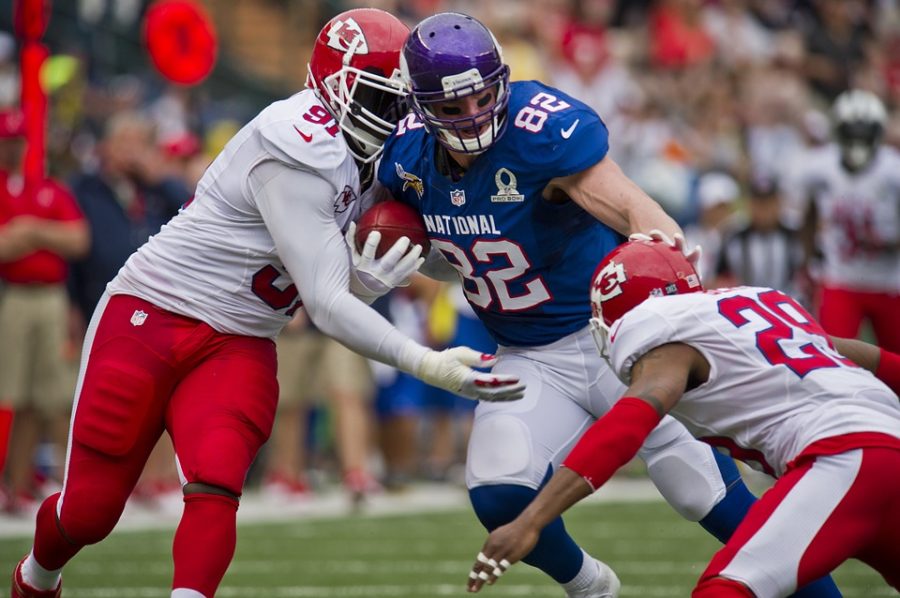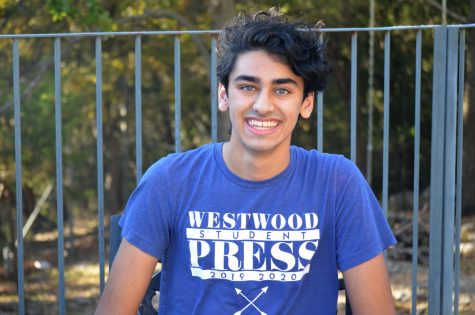NFL’s New Pass Interference Will Ruin Football
Opinion
April 8, 2019
Set to go down as the call (or rather non-call) that changed the sport, Nickell Robey-Coleman’s pass interference (PI) on Tommylee Lewis cost the Saints a trip to the Super Bowl and sparked massive protests against the NFL (National Football League) and will forever be remembered as one of the worst referee mistakes in history. Now, two months later, the NFL has taken action with the intention of preventing such a debacle from taking place ever again. They have made that fateful penalty, pass interference, reviewable by replay and allowed coach’s challenges to be used at any point in a game, including the precious final two minutes of a half. This will prevent disasters such as the one at the National Football Conference (NFC) championship, but it will do far more than that. It will mark a new age, and will continue the NFL’s drive to create faster paced and higher scoring games.
As time has gone on, the game of football has drastically changed from defensive and run-based smashmouth offenses to the pass-happy college spread and air raid concepts we see today. Over the past few years especially, rule changes have increased the ease with which offenses can score. There has to be a limit to this. While it is true that scoring is entertaining, a lack of resistance is boring. If you already know that a team will score when they take the field — and that is the direction the rules are moving towards — then what is the point of watching? In order for there to be a good game, there needs to be good offense that is matched by good defense. For example, people point to the Chiefs-Rams game as showing the evolution of the game, but several of the scores in that game were made by the defenses. For an offense to have value, there must be a defense to stand against it.
Though some will point to the dual nature of PI as proof this will not affect scoring, just fix incorrect or missed calls, that is simply not true. While pass interference goes both ways in theory, it is a far different story in practice. Last year, offensive PI was called 85 times for 837 penalty yards while defensive PI was called 249 times for 4280 penalty yards. That is nearly three times as many calls against the defense and more than five times as many yards the defense is penalized for. The new rule will allow offenses to go back via replay and gain up to the length of the football field on a subjective penalty. Despite that, if this was a call with concrete rules, replay review would make sense. However, there is a reason why review wasn’t allowed in the first place. The pass interference foul is really up to how the referee feels about the play. There is no clear action that means an action is pass interference or just legal enough to keep playing. Since looking at nearly any play in slow motion can reveal a little nudge here or a tap there, the defense will have to keep their distance from a receiver (leave them open) in order to prevent penalties. Since giving a receiver separation is effectively allowing them easy catches and endless big plays, the defense may as well not be on the field. This restriction of defenders will take the game out of football and change it into a monotonous celebration of scoring.
In addition, if players know they can go back and review it with replay, they might begin to flop or pretend to be fouled. Take this example: a corner is perfectly shadowing a receiver down the field, and the ball is thrown where the corner is able to make a play. The receiver can now initiate some contact and then act like a nudge given to them was much harder than it was in reality. Before the rule, falling down on the field would be considered a terrible decision as if you don’t get the call, the defender would get an easy pick. With this rule change, if the call isn’t immediately made, the coach can simply challenge it. As the benefit of the doubt is given to receivers, they will likely win the case and prove flopping a viable option.
While the challenge rule changes make sense as coaches should be able to challenge plays at the most important stage of a game, the final two minutes of a half, the pass interference change is terrible. The Saints- Rams call was clearly wrong, but this drastic of a measure should not be taken. It will not improve the game as the vast majority of pass interference calls, or non-calls, are already correct (or cannot be proved otherwise). Now if this was for another foul, like the false start penalty that the Chargers got away with on a touchdown play, it would be great for the sport. However, the NFL should not start replay review with the single most subjective call in sports as it will only lead to more controversy and will frankly be a waste of fans’ time.



